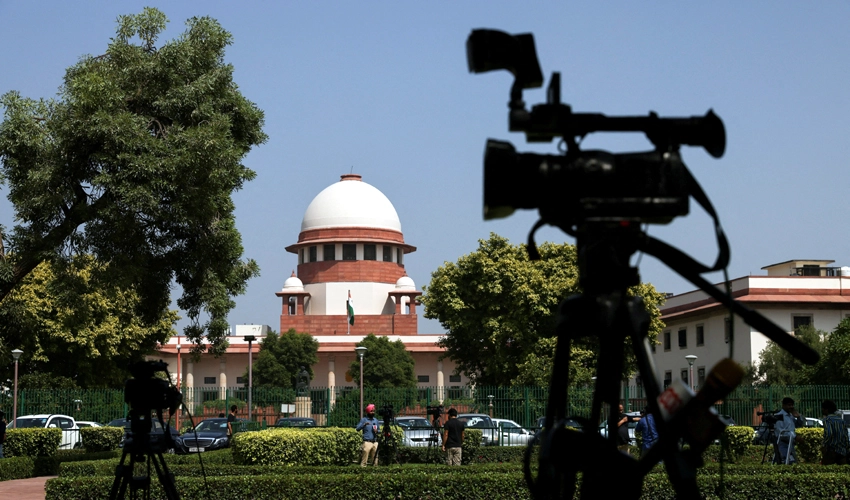Indian Supreme Court rejects pleas seeking restoration of Occupied Kashmir's special status

NEW DELHI (AFP) - India's top court on Monday upheld a move by Prime Minister Narendra Modi's government to revoke the limited autonomy of the Indian Illegally Occupied Jammu and Kashmir (IlOJ&K), rejecting pleas seeking restoration of its special status.
The 2019 declaration was 'a culmination of the process of integration and as such is a valid exercise of power', the Supreme Court said in its verdict.
The court alsi ordered that elections are held in IlOJ&K next year, after New Delhi revoked its limited autonomy and imposed direct rule in 2019. In a judgement, the Supreme Court said IlOJ&K should be put on par with other Indian states "at the earliest and as soon as possible", with state elections to take place by September 30, 2024.
The move was accompanied by the imposition of direct rule from New Delhi, mass arrests, a total lockdown and communication blackout that ran for months as India bolstered its armed forces in the region to contain protests.
The removal of Article 370 of the constitution, which enshrined the special status of the disputed region, was challenged by Kashmir's pro-India political parties, the local Bar Association and individual litigants, culminating in Monday's verdict.
Modi welcomed the judgement as "historic". The ruling was "a beacon of hope, a promise of a brighter future and a testament to our collective resolve to build a stronger, more united India", the Hindu nationalist leader posted on X, formerly Twitter.
Removing Article 370 has been a key plank of his Bharatiya Janata Party's platform since its inception, and the Supreme Court decision comes ahead of elections next year.
'Moral compass'
One of the advocates who argued for the revocation to be ruled unconstitutional -- the Supreme Court held hearings on it for 16 days -- was sanguine. "Some battles are fought to be lost," Kapil Sibal posted on X, even before the verdict was read out, saying the court action was intended to ensure that "history must record the uncomfortable facts for generations to know".
"History alone is the final arbiter of the moral compass of historic decisions," he added.
Since the suspension of Article 370 Indian authorities have curbed media freedoms and public protests in a drastic curtailment of civil liberties.
The changes allowed Indians from outside the region to buy land in it, and seek government jobs and education scholarships, a policy denounced by critics as "settler colonialism".
Kashmir has been divided between India and Pakistan since both countries were granted independence from British rule in 1947, when its Hindu maharajah chose to join the new Union of India. Initially New Delhi controlled only foreign affairs, currency, and communication in Kashmir, but over the decades the region's pro-India leaders collaborated with national authorities to dilute the provision.







